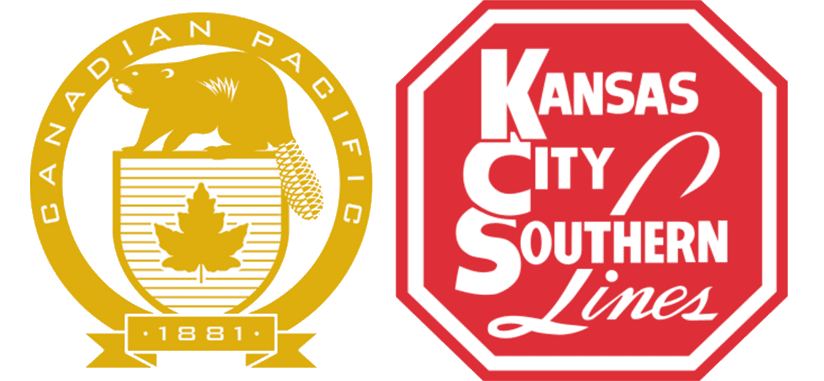
Calgary Alberta - Today, Canadian Pacific Railway Limited (CP) filed the following letter with the Surface Transportation Board
(STB):
The Honorable Cynthia T. Brown
Chief, Section of Administration, Office of Proceedings
Surface Transportation Board
395 E Street S.W.
Washington, DC 20423
Re: Finance Docket No. 36500
Dear Ms. Brown:
I am writing on behalf of the Canadian Pacific Applicants.
As the Board is no doubt aware, Canadian National (CN) has made an unsolicited offer to acquire Kansas City Southern (KCS), and has asked the Board of
Directors of KCS to consider that offer.
CN Press Release (30 Apr 2021).
CN has informed KCS that its proposal "would require the same regulatory approvals as those required under the agreement with CP" and that CN would
seek to "obtain such regulatory approvals on the same terms as in the merger agreement with CP, including through the use of the same voting trust
arrangement." Id.
CP believes that CN's proposal is illusory and inferior to the proposed CP/KCS transaction, and that a CN/KCS transaction would be contrary to the public
interest given its adverse impacts on competition and other serious concerns.
CP respectfully suggests that the Board should see things the same way, the only combination involving KCS that is in the public interest is the one that
CP has proposed, and which has already garnered support from over 400 shippers and other stakeholders.
A CN/KCS combination would reduce competitive options for countless shippers.
When the Board approved the CN/IC transaction in 1998, it addressed some of these competitive issues and found, in that context, "that KCS and CN/IC will
have every incentive to continue to compete aggressively for traffic where they are able to provide service alternatives, just as they have competed in the
past."
A CN/KCS combination would extinguish all of that competition.
CN and KCS serve many dozens of shippers in common, they operate parallel lines between Baton Rouge and New Orleans that have in the past supported
build-in/build-out competition, they both serve grain and other shippers in eastern Nebraska and western Iowa, they both reach the port of Mobile, Alabama,
they both serve shippers in Springfield, Illinois, East St. Louis, Illinois, Jackson, Mississippi, and their lines are largely parallel throughout eastern
Mississippi.
Even more fundamentally, between the Upper Midwest and Gulf Coast, in corridors like Twin Cities to New Orleans, a CN/KCS combination would reduce the number
of independent routing options from four to three.
A CN/KCS transaction would also destabilize the balance in the North American rail network that has prevented further consolidation of the six largest
railroads for two decades.
The CN/KCS transaction would eliminate CP's friendly connection at Kansas City (converting a joint CP/KCS yard to a facility shared with CN).
In the process, it would severely weaken (if not destroy) the viability of CP's lines through southeastern Iowa and northern Missouri and leave CP an
asymmetrically disadvantaged "odd-man-out" in a six-railroad North America.
Completion of a CN acquisition of KCS would create tremendous strategic pressure for CP to find a way to expand its market reach through further
consolidation.
As the Board has already seen, a CP/KCS transaction raises none of these concerns.
Instead, it enhances competition, creating new and stronger competitive single-line options against existing UP, BNSF, and CN single-line routes, as well as
taking trucks off the highway.
A prime example of the new competition that a CN acquisition of KCS would eliminate is the once-in-a-lifetime opportunity to provide grain shippers in the
Upper Midwest (the Dakotas, Minnesota, and Iowa) who are now beholden to UP and BNSF routes with new single-line rail options to reach destination markets in
the South Central United States and Mexico.
A CN/KCS transaction would not bring these benefits.
Similarly, a CP/KCS transaction diminishes the pressure for downstream consolidation by preserving the basic six-railroad structure of the North American rail
network, two in the West, two in the East, and two in Canada, each with access to the U.S. Gulf Coast.
By contrast, a CN/KCS transaction would fundamentally disrupt this balance.
Because of the far more serious public interest concerns posed by CN's proposed acquisition of KCS, CN's suggestion that its proposal should be subject to the
same regulatory treatment as the CP/KCS transaction is incorrect.
Whereas a CP transaction raises none of the issues that motivated the new merger rules in 2001, the CN proposal raises all of them, especially competitive and
downstream consolidation concerns.
CP will in due course be addressing the need to apply the 2001 rules to CN's proposal, should CN's proposal progress that far.
But there is no doubt that the best option for KCS and the U.S. public interest would be consummation of CP's proposed acquisition (following Board review),
and not an acquisition of KCS by CN or private equity investors.
The Board's regulatory treatment of these potential alternative paths should reflect their very different public interest consequences, (1) a simple and
straightforward, and strongly pro-competitive CP/KCS proposal, as against (2) a massively more complex and anticompetitive CN proposal, or (3) the acquisition
of KCS by private equity investors, with the loss of the new competition CP/KCS would achieve and uncertain consequences for KCS's balance sheet and its
independent future.
Accordingly, CP urges the Board to promptly confirm that consideration of the uniquely straightforward and beneficial CP/KCS transaction may proceed under the
pre-2001 rules, and that CP's voting trust proposal requires no further Board approval.
CP Applicants appreciate the Board's attention to this matter.
Respectfully submitted,
David L. Meyer - Attorney for Canadian Pacific Railway Limited.
(because there was no image with original article)
(usually because it's been seen before)
provisions in Section 29 of the Canadian
Copyright Modernization Act.

